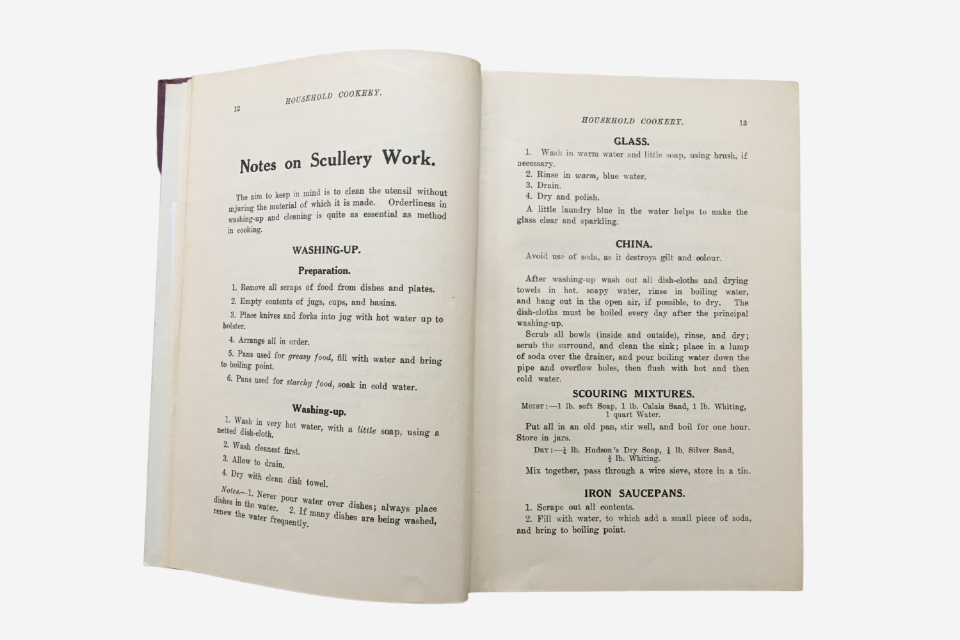Glimpse of hope
In the introductory section of the cookbook, preceding the hundreds of recipes selected by the instructors of the College, is an array of seemingly ‘commonsense’ instructions on tasks as simple as how to go about washing the dishes.
Why did the College and its instructors choose to include such directions on tasks that to many of us are almost second-nature? The historical and situational context of the College’s establishment can answer this, as it reveals much about the type of education prevalent amongst the working and lower classes at the time.
In Glasgow, industrialization left a profound impact on daily life in the city. Amidst the heydays of industry in the shipyards and textile factories, the population boomed; migrants flocked to the city, from the rural Highlands and from abroad (notably, Ireland). As Glasgow’s industry flourished, it assumed its place as the ‘Second City of the (British) Empire’, but with this came a distinct imbalance of wealth, with much of the population condemned to the city's slums and living in adverse poverty [Cameron, 2003].
Living with little money and often in derelict conditions, many young women had to be taught from the ground-up: starting at the most basic tasks, as they had little knowledge of household work and cookery. Moreover, enrollment in a Domestic College offered a glimpse of hope for many young women at the time: becoming trained in household work and cooking offered potential employment opportunities for women to bring in income alongside their husbands who worked in industry.
